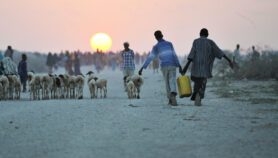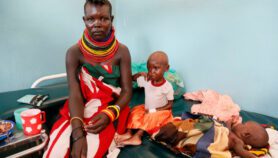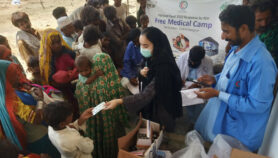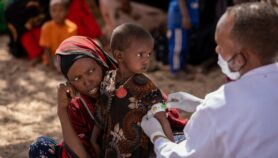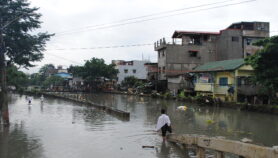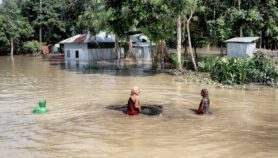Send to a friend
The details you provide on this page will not be used to send unsolicited email, and will not be sold to a 3rd party. See privacy policy.
A report on climate change warns that rising world temperatures could threaten human health and increase the number of displaced people in the Asia-Pacific region.
The report, released on 22 September by the Australian Medical Association and the Australian Conservation Foundation, warns that by 2100, as well as causing more droughts, floods and typhoons, climate change could also increase the incidence of malaria, dengue fever and cholera.
"Failure to dramatically cut carbon dioxide emissions will leave the world with serious environmental and health problems. But urgent action could curb climate change and reduce the suffering of millions in the Asia-Pacific region," says Ian Lowe, one of the report’s authors.
The report, which focuses on the effects of climate change on health in Australia, says global warming will increase the number of displaced people across the Asia-Pacific region — such as residents of low-lying regions in Bangladesh that will suffer from rising sea-levels.
The authors concede that the relationship between climate change and the origin, number and fate of ‘ecological refugees’ is "highly complex and uncertain" — and depends on factors such as the reaction of local governments.
However, they write, "even in the best case, the number of displaced people within the Asia-Pacific region is likely to increase by hundreds of thousands of people, most of whom will be internally confined within slums and camps".
"At the worst case, large scale state failure and major conflict may generate hundreds of millions of displaced people in the Asia-Pacific region, a widespread collapse of law, and numerous abuses of human rights."
They say the number of people displaced by climate change will depend on national and international efforts to reduce poverty.
"Replacing the war on terror with a rejuvenated war on want still appears a pipedream," they write.
They conclude: "If a ‘coalition of the giving’ between Australia, China, India, and the G8 could combine forces in an effort to genuinely reduce greenhouse gas emissions then the future could again be promising."





